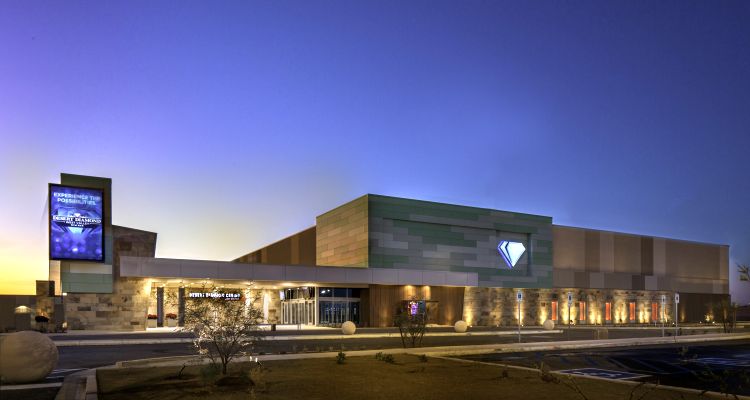Arizona Assistant State Attorney General Roger Banan has testified under oath that he deliberately destroyed notes resulting from meetings related to the Tohono O’odham casino in Glendale. Under the direction of the director of the state Department of Gaming, Daniel Bergin, Banan met with representatives of tribes opposed to the Phoenix area casino. In those meetings the tribes offered up ideas on how to put an end to the Tohono O’odham casino, according to tucson.com, citing a deposition in which Banan admitted to the closed door meetings.
Tohono O’odham attorneys had requested the notes to try to determine if Bergin, who has opposed the casino and accused the tribe of fraud in his reasons to deny them a full-scale gaming license, was somehow working in concert with their competitors. Banan reportedly stated that the notes were no longer available as he destroyed them after consultation with Bergin.
The rival tribes reportedly did not want the notes revealed, and Banan related that he didn’t think it was necessary to preserve them. Without notes to rely on, Banan seemed to have no recollection of what occurred in three separate meetings, according to his Aug. 23 deposition, which he delivered under oath.
The Tohono O’odham has prevailed in nearly 20 lawsuits with only minor setbacks, against strong opposition from the state and competing tribes in the area. Their challengers have filed suit, lobbied state and federal politicians, and nearly succeeded in getting an earmark passed in Washington D.C. that would, although not referring to the tribe or facility by name, make any operation of a casino on their land a federal crime.
Bergin for his part has jockeyed and sued, and currently contends that his opinion that the tribe committed fraud by not fully revealing their plans for a piece of land on the outskirts of the Phoenix suburb qualifies as reason enough to deny the Tohono O’odham a Class III gaming license. Desert Diamond West Valley Casino and Resort currently operates as a Class II facility, offering electronic bingo games that look and play like slots, but no Las Vegas-style table games or random number generated slot machines. Class II facilities do not require state approval to operate on tribal lands.
The tribe is suing Bergin in federal court in an attempt to prove that Bergin’s denial of their Class III license was illegal. Bergin has filed a countersuit, contending fraud. The latest wrinkle including the state and rival tribes meeting behind closed doors to work against the Tohono O’odham, and Banan’s subsequent destruction of records of the meetings may not play well with U.S. District Judge David Campbell.
Paul Charlton, lead attorney for the Tohono O’odham, told the judge in a new court filing Wednesday that, “Banan’s destruction of his notes was all the more egregious because they were public records protected by the Arizona Public Records Law,” Charlton stated. “As such, Banan knew, or certainly should have known, he had a legal obligation to preserve them.”
The latest episode in the the ongoing saga began with the revelation in early July that the state had shared documents, obtained under subpoena power from the Tohono O’odham tribe, with the rival Salt River Pima Maricopa Indian Community. Salt River then released the documents to the press. When learning of the meetings between state officials and the Salt River tribe, Judge Campbell stated, “Gila River has a strong commercial incentive to stop the West Valley Casino,” wrote Campbell. “Director Bergin’s interest is not commercial.”
The judge ordered the release of documents related to the state and tribe meeting, saying he was troubled by such an arrangement: “The court also finds troubling the notion that a state regulatory body could join in a privilege-protected partnership with one of the entities it regulates to thwart expansion efforts of another entity it regulates, whether or not the regulatory body has a valid basis for opposing the expansion,” stated Campbell. “That appears to be what is happening here.”
In yesterday’s court filing Attorney Charlton contended that after the meetings and Banan’s briefing of Bergin, gaming supply companies were told that they would be stopped from vending to other casinos in the state if they supplied the West Valley casino. He also said that the state had sent out letters to casino employees, and told the Department of Liquor Licenses and Control that they should deny a liquor permit to the facility. The casino opened on December 20, 2015, and has yet to secure a liquor license.
The state has unsuccessfully tried to remove Judge Campbell from the proceedings. If their latest machinations are found to be unfair, the judge could toss Bergin’s countersuit, making it easier for the tribe to prevail. On March 29, 2016, the U.S. Court of Appeals for the Ninth Circuit unanimously upheld Judge Campbell’s ruling that determined the Tohono O’odham Nation could offer Class III gaming at their Glendale casino.



